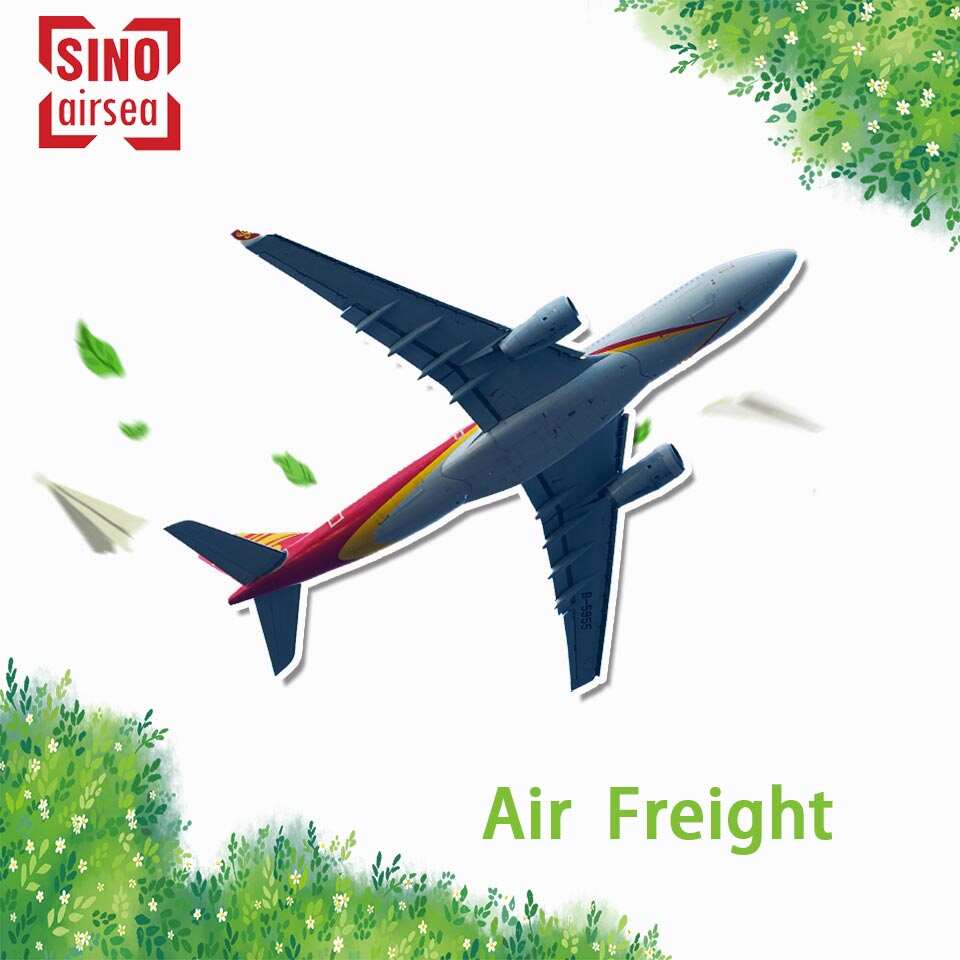Air Freight DDDP Transactions in Shipping: Full Analysis of Key Details
In international trade, air freight DDDP (Delivered Duty Paid) is an important trade term. It is crucial for both buyers and sellers to clarify its meaning and related rights and obligations as well as operational details. This article will explore the key points of air freight DDDP in depth.
1. The meaning and division of responsibilities of air freight DDDP
Meaning: DDDP means that the seller delivers the goods to the carrier or other person designated by the buyer at the designated destination, or the carrier or other person designated by the seller completes the import customs clearance procedures, and releases the goods from the customs supervision of the importing country, that is, the delivery is completed. Under the air freight DDDP term, the seller bears all risks and costs during the transportation of the goods, including export customs declaration, import customs clearance, tariffs, value-added tax and other related taxes and fees, until the goods arrive at the designated delivery location and complete customs clearance procedures.
Division of responsibilities:
Seller's responsibilities: Responsible for delivering the goods to the carrier or other person designated by the buyer at the designated place of shipment within the date or period specified in the contract, or if no carrier or other person is designated, to the carrier or other person selected by the seller; bear all risks of loss or damage to the goods until the goods are unloaded at the port of destination and delivered to the carrier or other person designated by the buyer, or the carrier or other person designated by the seller; responsible for obtaining all export licenses or other official approval documents required by the exporting country, and completing all customs formalities required for the export of goods; paying all freight and other expenses required for the transportation of goods to the port of destination, including loading and unloading fees, transportation fees, insurance premiums, etc.; providing the buyer with appropriate transport documents and commercial invoices so that the buyer can complete import formalities and receive the goods.
Buyer's responsibilities: Responsible for receiving the goods when the seller delivers the goods in accordance with the contract; bear the risks and costs after receiving the goods; obtain all import licenses or other official approval documents required by the importing country, and complete all customs formalities required for the import of goods. In certain specific cases, the buyer is also responsible for handling the loading and unloading and transportation of the goods at the port of destination.
2. Cost structure of air freight DDDP
Air freight: This is the main component of air freight DDDP transportation cost, which is determined by factors such as the weight, volume, transportation distance and freight rate standards of the airline. When calculating air freight, the larger of the weight and volume weight is usually used.
Fuel surcharge: Due to the fluctuation of aviation fuel prices, airlines will charge a certain percentage of fuel surcharge to make up for the increase in fuel costs. This fee is generally adjusted according to changes in international fuel market prices.
Security inspection fee: In order to ensure the safety of air transportation, the goods need to undergo strict security inspections before transportation, and the corresponding security inspection fees are borne by the seller.
Airport operation fee: It includes the costs incurred in the loading and unloading, handling, warehousing and other operations of the goods at the airport. The charging standards of different airports may be different.
Customs declaration fee and commodity inspection fee: The seller needs to entrust a professional customs broker or freight forwarding company to handle the export customs declaration and import customs clearance procedures of the goods, as well as the relevant commodity inspection procedures. The customs declaration fee and commodity inspection fee incurred are also part of the cost of air freight DDDP.
Tariffs and VAT: According to the customs regulations of the importing country, the corresponding tariffs and VAT need to be paid when the goods are imported. These taxes are borne by the seller and included in the total cost of the goods.
3. Operational procedures and precautions for air freight DDDP
Operational procedures:
Contract signing: The buyer and seller clearly agree to use the air freight DDDP term in the contract, and specify the description, quantity, price, delivery location, transportation time and other terms of the goods in detail.
Goods preparation: The seller prepares the goods in accordance with the contract requirements, handles the export customs clearance procedures, and transports the goods to the designated airport warehouse or the location designated by the freight forwarding company.
Transportation arrangement: The seller entrusts the air freight forwarder or airline to arrange the transportation of the goods, including booking space, arranging the loading and unloading and transportation of the goods, and providing the buyer with flight information and estimated arrival time, etc.
Import customs clearance: After the goods arrive at the port of destination, the seller is responsible for handling the import customs clearance procedures, paying tariffs, VAT and other related taxes and fees, and extracting the goods from customs supervision.
Delivery and acceptance: The seller will deliver the goods after customs clearance to the buyer or the consignee designated by the buyer at the place and time agreed in the contract. The buyer will inspect the goods and complete the delivery procedures after confirming that the quantity and quality of the goods meet the contract requirements.
Notes:
Accurate understanding of trade terms: The buyer and seller should fully understand the meaning and division of responsibilities of the DDDP terms to avoid disputes and losses caused by misunderstandings of the terms. Before signing the contract, the two parties should communicate in detail and clearly agree on their respective rights and responsibilities.
Cost accounting and control: Since air freight DDDP involves the costs of many links, the seller needs to accurately calculate and effectively control various costs to ensure that the total cost of the goods is within the budget and avoid affecting the smooth progress of the transaction due to cost issues.
Preparation and handover of transportation documents: The seller should prepare various transportation documents in a timely and accurate manner, such as commercial invoices, packing lists, customs declarations, air waybills, etc., and deliver the relevant documents to the buyer or its agent in a timely manner during the transportation of the goods, so that the buyer can smoothly handle the import procedures and receive the goods.
Risk prevention and insurance: Although the seller bears the risks during the transportation of the goods until the delivery is completed, it is still recommended that the seller purchase appropriate transportation insurance for the goods to prevent unforeseen risks and losses, such as damage or loss of goods during transportation due to natural disasters, accidents, etc.
Communication and coordination: Throughout the transaction process, the buyer and seller and related parties such as transportation and customs declaration should maintain close communication and coordination to promptly resolve possible problems and emergencies to ensure that the goods can be delivered to the buyer smoothly and on time.



